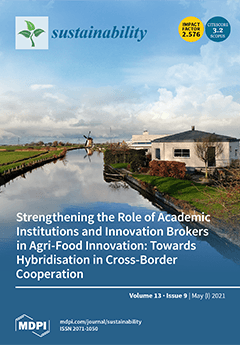Open AccessArticle
Towards More Balanced Territorial Relations—The Role (and Limitations) of Spatial Planning as a Governance Approach
by
Karlheinz Knickel, Alexandra Almeida, Lisa Bauchinger, Maria Pia Casini, Bernd Gassler, Kerstin Hausegger-Nestelberger, Jesse Heley, Reinhard Henke, Marina Knickel, Henk Oostindie, Ulla Ovaska, Carlos Pina, Massimo Rovai, Hans Vulto and Johannes S. C. Wiskerke
Cited by 15 | Viewed by 5392
Abstract
Decision-makers, planners and administrators involved in different policy domains at different governance levels face the important challenge of fostering more balanced, sustainable and territorially integrated development. Well-designed, multi-level, multi-sector and multi-actor governance arrangements can play a key role in this process through orchestrating
[...] Read more.
Decision-makers, planners and administrators involved in different policy domains at different governance levels face the important challenge of fostering more balanced, sustainable and territorially integrated development. Well-designed, multi-level, multi-sector and multi-actor governance arrangements can play a key role in this process through orchestrating the interplay between different spheres, activities, actors and interests. In this paper, we examine the role of spatial planning in improving the relations between rural, peri-urban and urban areas. We analyse the strengths and limitations of spatial planning and explore the connections with territorial development. The methodology used for this analysis combines regional case studies in seven European locations—Ede, Frankfurt/Rhein-Main, Styria/Graz, Helsinki, Lisbon, Lucca and Mid Wales, with rapid appraisals, the analysis of published data, expert judgement and triangulation. We ask under which conditions spatial planning can induce more balanced, sustainable territorial relations, and look at the contribution planning can make to achieving sustainable development goals. The problem of ineffective (or toothless) plan implementation provides the entry point into the analysis and discussion. We illustrate why mutually beneficial relations between urban, peri-urban and rural communities (and territories) cannot simply be planned. Instead, these relationships need to be supported by strategies, policy instruments and governance arrangements that foster synergies between different actors and activities. The planning process itself needs to become more transparent and participatory. We conclude that the questions addressed in this article in an exploratory fashion merit further research especially as a more sustainable and territorially integrated development is becoming increasingly important in European policy making.
Full article
►▼
Show Figures





